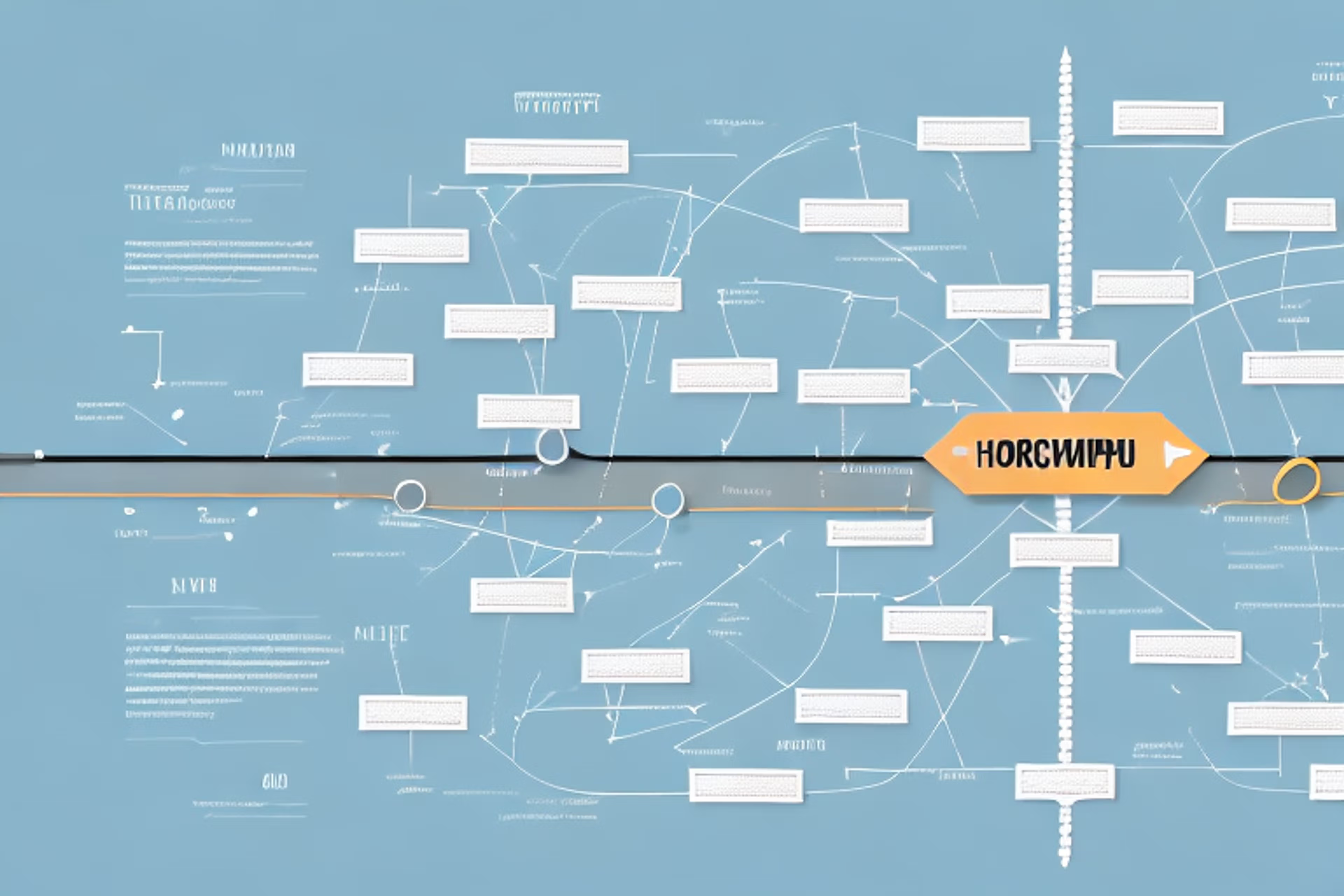From Classroom to Boardroom: How to Transition from Education to Management Consulting
Are you a recent graduate or educator looking to transition into the world of management consulting? This article provides valuable insights and tips on how to make a successful transition from the classroom to the boardroom.
Posted March 6, 2025

Table of Contents
Are you a teacher, professor, or education professional looking for a change? Management consulting may be the perfect career transition for you. While it may seem daunting to move from the classroom to the boardroom, there are many benefits to making the leap. In this article, we will explore the key differences between education and management consulting, as well as strategies for leveraging your educational background to succeed in this exciting field.
The Benefits of Moving from Education to Management Consulting
One of the biggest advantages of transitioning from education to management consulting is the opportunity to work on a variety of projects across different industries. As an education professional, you likely have a wealth of knowledge and skills that can be applied to a wide range of business challenges. Consulting also offers the chance to work with different clients and teams, which can be stimulating and rewarding. Additionally, management consulting can be a highly lucrative career choice, with competitive salaries and benefits packages.
Another benefit of moving from education to management consulting is the opportunity to develop new skills and knowledge. Consulting firms often provide extensive training programs for their employees, which can help you expand your expertise in areas such as data analysis, project management, and strategic planning. This can be particularly valuable if you are looking to broaden your career horizons or transition into a new field. Furthermore, consulting can offer a fast-paced and dynamic work environment, which can be exciting and challenging for those who thrive on new experiences and learning opportunities.
Understanding the Key Differences between Education and Management Consulting
While there are many similarities between teaching and consulting – such as the need to communicate complex information effectively – there are also several key differences. In education, the focus is on imparting knowledge and skills to students. In consulting, the goal is to solve business problems and improve performance. Consulting also requires a great deal of flexibility, as consultants may work on multiple projects concurrently and must be able to adapt to different workplaces and teams.
Another key difference between education and management consulting is the level of expertise required. In education, teachers are expected to have a deep understanding of their subject matter and pedagogy. In consulting, consultants must have a broad range of knowledge across multiple industries and be able to quickly learn and apply new information. Additionally, consultants must have strong analytical and problem-solving skills to effectively address complex business challenges.
Furthermore, the outcomes of education and management consulting differ significantly. In education, the primary goal is to help students acquire knowledge and skills that will prepare them for future success. In consulting, the focus is on delivering tangible results that improve a company's bottom line. This often involves identifying inefficiencies, streamlining processes, and implementing new strategies that increase revenue and reduce costs.
How to Leverage Your Educational Background in Management Consulting
Your experience in education can be a significant asset in management consulting. For example, your expertise in curriculum development can be applied to developing training programs for corporate clients. Your experience in data analysis can be applied to market research and business analysis. It is important to identify the transferable skills and strengths that you bring to the consulting world and to communicate them effectively to potential employers.
In addition to curriculum development and data analysis, your experience in education can also be leveraged in management consulting through your knowledge of instructional design. This can be applied to creating effective training materials and e-learning modules for clients. Furthermore, your experience in project management, gained through managing classroom projects and assignments, can be applied to managing consulting projects and teams.
Another way to leverage your educational background in management consulting is through your understanding of different learning styles and how to tailor training programs to meet the needs of diverse audiences. This can be applied to developing customized solutions for clients that take into account their unique organizational culture and employee demographics.
Overcoming Challenges in the Transition from Education to Management Consulting
Transitioning from education to management consulting can be challenging, particularly if you are used to the more structured environment of academia. Time management, project management, and adaptability are all essential skills that you will need to develop to succeed in consulting. Additionally, networking and building relationships with other consultants and clients can be important for your long-term success.
Another challenge that you may face in the transition from education to management consulting is the need to quickly learn and understand new industries and business models. As a consultant, you will be working with clients from a variety of industries, and it will be important for you to be able to quickly grasp the nuances of each industry and understand the unique challenges that each client faces. This requires a willingness to learn and adapt quickly, as well as strong research and analytical skills.
The Importance of Networking in Making the Jump to Management Consulting
Networking can be a critical factor in finding your first consulting position. Attend industry events, join professional associations, and connect with alumni from your university who work in consulting. It can also be helpful to work with a recruiter who specializes in management consulting placements.
Additionally, networking can also play a crucial role in advancing your career in management consulting. Building strong relationships with colleagues, clients, and industry leaders can lead to new business opportunities, promotions, and even job offers from other firms. It's important to maintain these connections by regularly attending industry events, keeping in touch with former colleagues, and seeking out mentorship opportunities.
Finding Your Niche: Specializing in a Specific Area of Management Consulting
As you gain experience in management consulting, you may find that you are particularly skilled or interested in a specific area. For example, you may excel at organizational change management or have a passion for sustainability consulting. Specializing in a niche area can help you develop expertise and stand out in a competitive field.
Furthermore, specializing in a specific area of management consulting can also lead to higher rates of pay. Clients are often willing to pay a premium for consultants who have a deep understanding of their industry or specific business challenge. By focusing on a niche area, you can position yourself as an expert and command higher fees for your services.
Developing the Skills Necessary for Success in Management Consulting
Management consulting requires a range of skills, including problem-solving, communication, project management, and a strong work ethic. It is important to continually develop these skills through training and on-the-job experience. Mentoring and coaching can also be invaluable in helping you refine your consulting skills and navigate the consulting world.
Additionally, staying up-to-date with industry trends and advancements is crucial in management consulting. This can be achieved through attending conferences, reading industry publications, and networking with other professionals in the field. It is also important to have a strong understanding of the industries and businesses you are consulting for, as well as the ability to adapt to different work environments and cultures. By continuously developing and refining your skills, you can position yourself for success in the competitive world of management consulting.
Creating a Strong Resume and Cover Letter for a Career in Management Consulting
Your resume and cover letter are often the first impression that potential employers will have of you. Be sure to highlight your relevant experience and skills, and tailor your application materials to the specific consulting firm and position that you are applying for. It can also be helpful to include any consulting-related volunteer work or side projects that you have pursued.
When crafting your resume and cover letter, it's important to showcase your problem-solving abilities and analytical skills. Management consulting firms are looking for candidates who can think critically and provide innovative solutions to complex business problems. Be sure to provide specific examples of how you have demonstrated these skills in your previous work experience or academic projects.
In addition to highlighting your skills and experience, it's also important to demonstrate your passion for the consulting industry. This can be done by researching the consulting firm and industry trends, and incorporating this knowledge into your application materials. You can also demonstrate your enthusiasm by networking with current consultants and attending industry events.
Navigating the Interview Process: Tips and Tricks for Landing Your Dream Job
The interview process for management consulting positions can be rigorous and multifaceted. Be prepared to answer case study questions, behavioral interview questions, and fit questions that assess your cultural fit with the organization. Practice your interview responses and be prepared to provide concrete examples of your past work experience.
It is also important to research the company and the industry before the interview. This will help you understand the company's values, mission, and goals, and allow you to tailor your responses to align with them. Additionally, it is important to dress professionally and arrive early to the interview to show that you are serious about the opportunity.
During the interview, make sure to listen carefully to the interviewer's questions and ask clarifying questions if needed. Be confident, but also humble and willing to learn. Remember to follow up with a thank-you note or email after the interview to express your gratitude and reiterate your interest in the position.
Balancing Work and Life: Strategies for Maintaining a Healthy Work-Life Balance in Management Consulting
Management consulting can be a demanding and high-pressure field, which can make it challenging to maintain a healthy work-life balance. To avoid burnout, prioritize self-care and make time for activities that you enjoy outside of work. Communicate openly with your colleagues and managers about your workload and availability, and don't be afraid to set boundaries when necessary.
The Role of Mentors in Your Transition from Education to Management Consulting
Mentors can provide valuable guidance and support as you navigate the transition from education to management consulting. Seek out mentors in your field who can offer advice on navigating the industry, developing your skills, and building your network. Joining a mentorship program or seeking out informal mentoring relationships can be an effective way to connect with experienced professionals.
How to Stay Up-to-Date with the Latest Trends and Developments in Management Consulting
The management consulting industry is constantly evolving, and it is important to stay up-to-date on the latest trends and developments. Take advantage of industry publications, blogs, and events to stay informed. You can also learn from colleagues and mentors who are engaged in new and innovative consulting approaches.
Building a Strong Professional Network: Strategies for Successful Relationship-Building
Building a strong professional network is critical in management consulting, where relationships with colleagues and clients can be essential to success. Attend industry events, participate in professional associations, and connect with other consultants through social media and online forums. Building strong relationships with your colleagues and clients can help you achieve your goals and advance your career in consulting.
With these tips and strategies, you can successfully transition from the classroom to the boardroom and thrive in the exciting and dynamic world of management consulting.



















